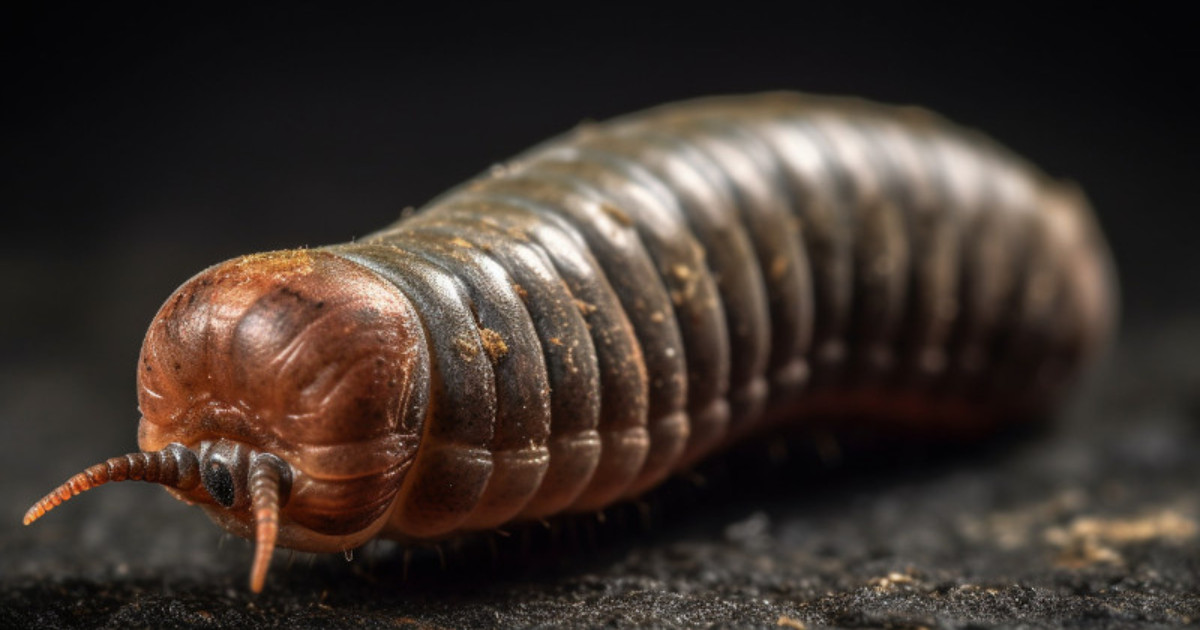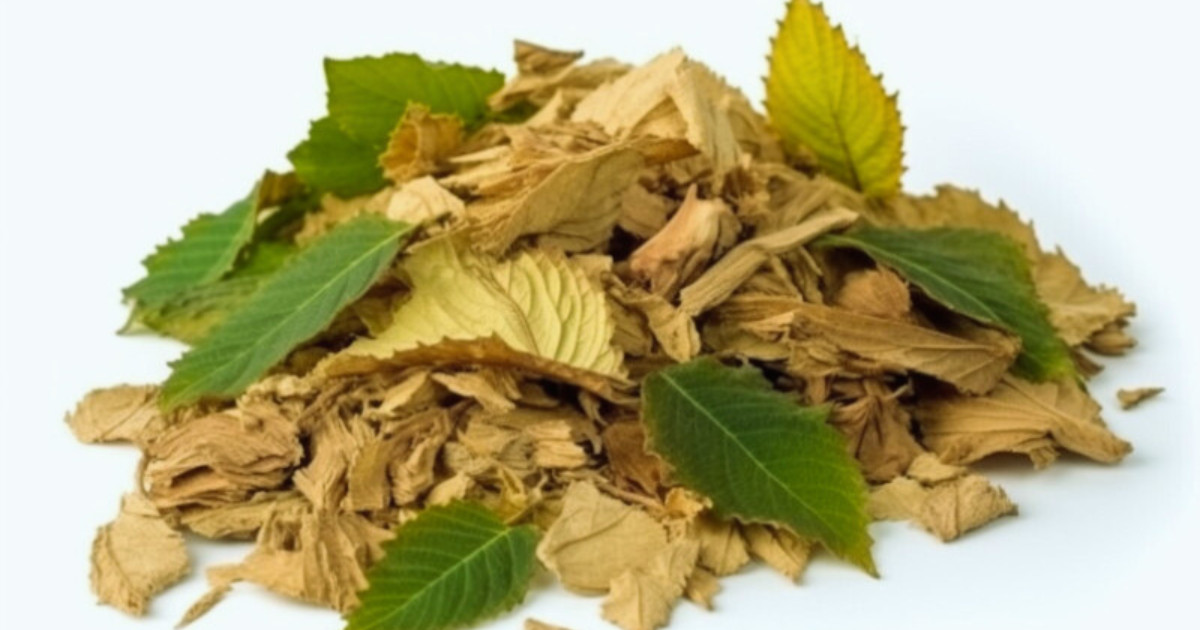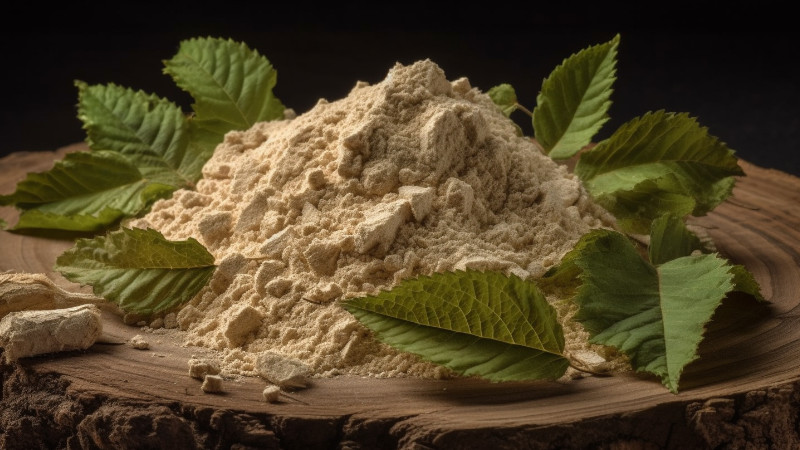Let’s take a closer look at Slippery Elm bark vs Black Walnut hulls. These are two popular natural remedies for promoting gut health and cleansing the body of parasites. Both have been used for centuries in traditional medicine due to their regarded benefits, but what are the differences between the two?
Slippery Elm bark is derived from the inner bark of the slippery elm tree. It is known for its soothing properties and ability to relieve digestive issues such as acid reflux and irritable bowel syndrome. 1
Black Walnut hulls, on the other hand, are known for their anti-parasitic properties and ability to rid the body of harmful organisms such as tapeworms and threadworms. 2
As you work your way through this article, and related articles here, you will find all the pieces of the puzzle in this discussion and have a better idea of how they fit together to support a bigger-picture understanding.
Table of Contents
Gut Health and Parasites
Gut health is important for overall health and well-being. This is why the topic of Slippery Elm bark vs Black Walnut hulls is so important.
When parasites invade the gut, they can cause a variety of symptoms such as diarrhea, constipation, abdominal pain, and bloating. Parasites can also lead to nutrient deficiencies and a weakened immune system. 3
Our featured discussion on Slippery Elm Bark vs Black Walnut Hulls considers two natural remedies that are often used to cleanse the gut of parasites.

Slippery Elm Bark is known for its soothing properties and can help to reduce inflammation in the gut. This is a result of the high amount of mucilage, which can help to soothe and protect the gut lining. 4
When it comes to Slippery Elm Bark vs Black Walnut Hulls, it is important to consider your individual needs and preferences. Slippery Elm Bark may be a better choice for those who are looking for a gentle, soothing remedy for gut inflammation. While Black Walnut Hulls may be a better choice for those who are dealing with a more severe parasite infestation.
Benefits of Slippery Elm Bark for Gut Health
Slippery Elm bark has been used for centuries to soothe and heal the digestive tract. It is known as the “king of digestive herbs” due to its high mucilage content.
Slippery Elm bark can help with a variety of digestive issues, including: 5
- Constipation
- Diarrhea, and
- Acid reflux.
It can also help to heal ulcers and reduce inflammation in the gut. Additionally, Slippery Elm bark can help to boost the immune system, which is important for overall gut health. 6
Some other potential benefits of Slippery Elm bark for gut health include:
- Reducing symptoms of irritable bowel syndrome (IBS) 7
- Relieving nausea and vomiting 8
- Reducing inflammation in the gut 9
- Stimulating the production of mucus in the gut, which can help to protect the digestive tract from irritants 10
Overall, Slippery Elm bark is a great option for anyone looking to improve their gut health. It is gentle and considered safe to use, and has a long history of traditional use.
Benefits of Black Walnut Hulls for Parasite Cleanse
The main benefits of Black Walnut Hulls in the Slippery Elm Bark vs Black Walnut Hulls discussion that we will consider here include their:
- Anti-Parasitic properties
- Detoxifying properties
- Immune supporting properties, and
- Anti-Inflammatory properties
Black Walnut Hulls are commonly used in parasite cleanses due to their potent anti-parasitic properties. The hulls of the black walnut tree contain juglandin, juglone, and juglandic acids, which are known to be effective against various types of parasites. 11 12 13
Additionally, Black Walnut Hulls are also rich in tannins and organic iodine, which can help to cleanse and detoxify the body.
When used as part of a parasite cleanses, Black Walnut Hulls can help to expel parasites from the body and prevent their re-infestation. They work by killing the parasites and their eggs, and also by stimulating the body’s natural immune response to fight off the infection. 14
Black Walnut Hulls can also help to improve overall gut health by promoting the growth of beneficial gut bacteria. They contain compounds that can help to reduce inflammation and irritation in the gut, and also help to strengthen the gut lining to prevent the entry of harmful substances into the bloodstream.
Using for Gut Health and Parasite Cleanse
When it comes to considering Slippery Elm Bark vs Black Walnut Hulls, this is where the topic is more of a combined benefits value proposition for me, rather than an either-or. I find that for me, these two are a powerful combination.
However, this is not to say that my opinion is advice in any way. You must seek specialist advice before making any changes to your routine in this regard. Any data provided below is for informational and contextual purposes only.
Slippery Elm Bark
Slippery Elm Bark is available in different forms such as capsules, powder, and tea. Most practitioners typically recommend taking 1 to 2 teaspoons of Slippery Elm Bark powder mixed with water or juice, 2 to 3 times a day.
Slippery Elm Bark can also be taken in the form of tea. To make Slippery Elm Bark tea, mix 1 to 2 teaspoons of Slippery Elm Bark powder with hot water and let it steep for 5 to 10 minutes. Again, specialist advice typically consists of drinking the tea 2 to 3 times a day.

It is important to note that Slippery Elm Bark should be taken with at least 8 ounces of water or liquid to prevent it from swelling and causing blockages in the digestive system.
It is also advised to take Slippery Elm Bark at least 2 hours before or after taking any medication as it may interfere with the absorption of the medication. Speak with your healthcare professional first.
Black Walnut Hulls
Black Walnut Hulls are available in different forms such as capsules, powder, and tincture. When suggested, they are typically recommended as taking between 1 and 2 capsules of Black Walnut Hulls, 2 to 3 times a day.
Black Walnut Hulls can also be taken in the form of a tincture.
It is important to note that Black Walnut Hulls should not be taken for more than 2 weeks at a time as it may cause liver damage. 15
It is also advised to take Black Walnut Hulls at least 2 hours before or after taking any medication as it may interfere with the absorption of the medication. Again, speak with your healthcare professional first.
Possible Side Effects and Interactions
Slippery Elm Bark vs Black Walnut Hulls is generally safe when taken in recommended doses. However, some people may experience side effects such as nausea, vomiting, and diarrhea. So, proceed with appropriate advice only.
Slippery Elm Bark theoretically may interact with certain medications such as:
- Digoxin (e.g. cardiac medication)
- Lithium (e.g. mood stabilising medication), and
- Carbamazepine (e.g. epilepsy and nerve pain medications).
Black Walnut Hulls may interact with certain medications such as:
- Blood thinners
- Cholesterol-lowering drugs, and
- Antifungal medications.
It is important to consult a healthcare professional before considering applying anything in the Slippery Elm Bark vs Black Walnut Hulls conversation, especially if you are taking any medication.
It is also important to note that regardless of the content covered in the Slippery Elm Bark vs Black Walnut Hulls discussion, these should not be used as a substitute for suitable medical treatment.
If you are experiencing symptoms of gut health issues or parasites, it is important to consult a healthcare professional for proper diagnosis and treatment. Your healthcare professional may well prescribe Slippery Elm Bark or Black Walnut Hulls. If they do, these will be prescribed in a manner that suits your specific needs.
FAQs
What does Black Walnut Hull do for the body?
Black Walnut Hull can improve gut health and cleanse the body of parasites. Its compounds, including juglandin, juglone, and juglandic acids, are effective against various parasites.
Additionally, it is rich in tannins and organic iodine, which help detoxify the body. Black Walnut Hulls also promote the growth of beneficial gut bacteria and strengthen the gut lining, protecting it from harmful substances entering the bloodstream.
What are the Side Effects of Black Walnut Hull Tincture?
Black Walnut hull side effects may occur when using the tincture, although generally safe in recommended doses. Possible side effects include:
• nausea
• vomiting, and
• diarrhea.
Additionally, it’s important not to take Black Walnut hull for more than 2 weeks at a time, as it may cause liver damage.
Pregnant and breastfeeding women, those with nut allergies, and people with liver or kidney disease should exercise caution and consult a healthcare professional before using Black Walnut hull tincture.
Is Black Walnut Antifungal?
Black Walnut hull is known for its antifungal properties, which is one of the reasons it is used in natural remedies for gut health and parasite cleansing. The presence of juglone and tannins in black walnut hull makes it effective in fighting off harmful fungi.
So, when asking what is black walnut hull good for, its antifungal properties play a significant role in promoting a healthier gut and combating infections. This is yet another golden nugget in the Slippery Elm bark vs Black Walnut hulls discussion.
What is Black Walnut Wormwood good for?
Black Walnut and Wormwood are both powerful natural remedies commonly used to cleanse the body of parasites.
Black Walnut hull for parasites is effective due to its potent anti-parasitic properties, primarily attributed to the presence of juglone. Wormwood, on the other hand, contains compounds like artemisinin that help eliminate various types of parasites, including worms.
Combining these two potent herbs can create a synergistic effect, providing a comprehensive and effective solution to cleanse the body of parasites and improve overall gut health.
Is Black Walnut antispasmodic?
Yes, Black Walnut is known to have antispasmodic properties, which means it can help to relax muscle contractions and alleviate cramps or spasms.
This is just one of the many Black Walnut hull benefits, side effects also need to be considered.
While most people can safely use Black Walnut hull, some individuals may experience gastrointestinal discomfort, skin irritation, or allergic reactions.
Are Black Walnuts Anti Inflammatory?
Yes, Black Walnuts are known to possess anti-inflammatory properties, which can help reduce inflammation in the body.
The various Black Walnut hull uses include supporting gut health, fighting parasites, and promoting overall well-being.
The anti-inflammatory compounds found in Back Walnuts may help alleviate inflammation-related issues such as joint pain and digestive problems.
Conclusion
The Slippery Elm Bark vs Black Walnut Hulls discussion has seen that these are both known for their gut health benefits and parasite-cleansing properties. It is important to consult a healthcare professional before taking Slippery Elm Bark or Black Walnut Hulls, especially if you are pregnant, breastfeeding, or taking any medication.
Black Walnut Hulls contain juglandin, juglone, and juglandic acids, as well as tannins and organic iodine. These compounds have been shown to be effective against parasites and harmful bacteria in the gut.
However, Black Walnut Hulls may not be suitable for everyone. They should be avoided by pregnant women, individuals with nut allergies, and those with liver or kidney disease.
Slippery Elm Bark, on the other hand, is a gentle yet effective remedy for digestive issues. It contains mucilage, a sticky substance that coats the digestive tract and soothes inflammation.
Slippery Elm Bark is generally considered safe for most people, but it may interact with certain medications. It’s always best to check with a healthcare professional before taking any new supplements.
What are your experiences with Slippery Elm Bark vs Black Walnut Hulls? Join the conversation on Instagram and Pinterest.
References
- “Effects of two natural medicine formulations on irritable bowel syndrome symptoms: a pilot study” – J. A. Hawrelak, S. P. Myers, October 2010 [PubMed] [Archive] ↩︎
- “How to Use Black Walnut for Parasites Control” – TSMP Staff, 17 December 2022 [Tuggeranong Square Medical Practice] [Archive] ↩︎
- “Parasites, nutrition, immune responses, and biology of metabolic tissues” – T. Shea-Donohue, B. Qin, A. Smith., 22 March 2017 [PubMed] [Archive] ↩︎
- “Prebiotic Potential of Herbal Medicines Used in Digestive Health and Disease” – C. T. Peterson, V. Sharma, S. Uchitel, K. Denniston, D. Chopra, P. J. Mills, S. N. Peterson, 1 July 2018 [PubMed] [Archive] ↩︎
- “Can You Use Slippery Elm to Treat Acid Reflux?” – D. Weatherspoon, N. Silver, 20 August 2018 [Healthline] [Archive] ↩︎
- “Top 9 Ways Slippery Elm Benefits Your Health + How To Use It” – W. Cole, 28 March 2023 [Dr. Will Cole] [Archive] ↩︎
- “Slippery Elm” – S. E. Edwards, I. da Costa Rocha, E. M. Williamson, M. Heinrich, February 2015 [ResearchGate] [Archive] ↩︎
- “Effectiveness of Nutritional Ingredients on Upper Gastrointestinal Conditions and Symptoms: A Narrative Review” – R. M. Schulz, N. K. Ahuja, J. L. Slavin, February 2014 [PubMed] [Archive] ↩︎
- “Natural Product-Derived Drugs for the Treatment of Inflammatory Bowel Diseases” – Y. E. Joo, April 2014 [PubMed] [Archive] ↩︎
- “Prebiotic Potential of Herbal Medicines Used in Digestive Health and Disease” – C. T. Peterson, V. Sharma, S. Uchitel, K. Denniston, D. Chopra, P. J. Mills, S. N. Peterson, 1 July 2018 [PubMed] [Archive] ↩︎
- “Isolated extract of walnuts, process for its obtaining and its use” – V·麦切列斯, 29 May 2007 [Google Patents] [Archive] ↩︎
- “A Comprehensive Review on the Chemical Constituents and Functional Uses of Walnut (Juglans spp.) Husk” – A. Jahanban-Esfahlan, A. Ostadrahimi, M. Tabibiazar, R. Amarowicz, 12 August 2019 [PubMed] [Archive] ↩︎
- “Juglone in Oxidative Stress and Cell Signaling” – T. Ahmad, Y. J. Suzuki, 25 February 2019 [MDPI] [Archive] ↩︎
- “Organic Gastrointestinal Parasite Control” – B. Syme, 2003 [MLA] [Archive] ↩︎
- “Black Walnut – Uses, Side Effects, and More” – WebMD Staff, Last Checked 15 April 2023 [WebMD] [Archive] ↩︎
Last Updated on 6 months by D&C Editorial Team


